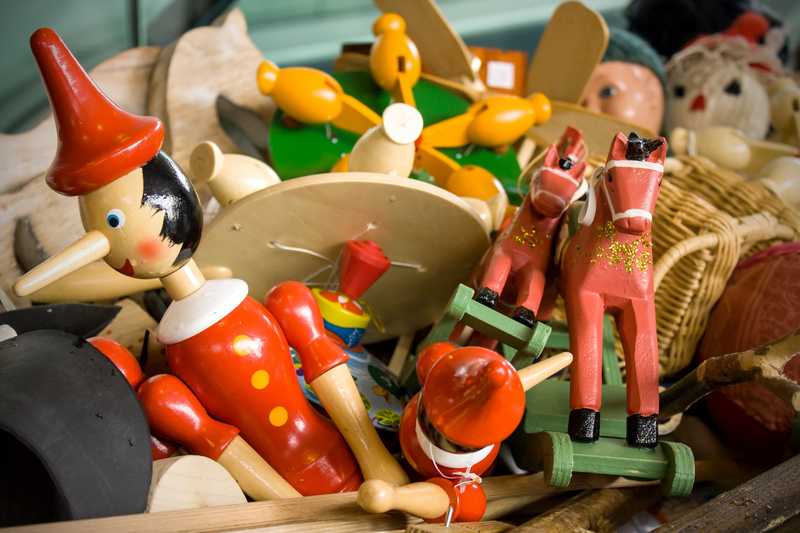Simple Steps to Reduce Spending on Bulky Waste Items
Bulky waste items can take a significant bite out of your household budget. From old furniture and large appliances to garden refuse and broken bicycles, disposing of these items often incurs unexpected fees and logistical challenges. However, there are simple ways to reduce spending on bulky waste disposal that can also positively impact the environment and your community. This comprehensive guide will walk you through straightforward strategies to minimize bulky waste collection costs while helping you manage large-scale rubbish eco-consciously.

What are Bulky Waste Items?
To effectively cut costs, it's crucial to understand what constitutes bulky waste. Typically, this term refers to large household goods that won't fit in your regular rubbish bin. These include:
- Old beds, mattresses, sofas, armchairs, tables, and chairs
- White goods like refrigerators, washing machines, and stoves
- Garden waste (large branches, garden furniture, barbecues, sheds)
- Bicycles, exercise equipment, and prams
- Carpets and rugs
Most municipalities charge additional fees for the collection and disposal of these items. By learning creative and practical ways to minimize such expenses, you can reduce both your clutter and your outgoings.
Why Reducing Bulky Waste Spending Matters
Minimizing how much you spend on bulky waste isn't just about saving money. There are broader environmental and social benefits:
- Environmental Protection: Less waste in landfills means fewer greenhouse gas emissions and less soil and water pollution.
- Community Support: Donating rather than dumping can help local families and charities.
- Resource Conservation: Extending the life of your products means fewer raw materials are used.
- Cost Efficiency: The less you dispose of, the fewer collection and disposal charges you'll face.
Top Simple Steps to Cut Bulky Waste Disposal Costs
If you're determined to spend less on bulky waste disposal, try these proven methods:
1. Assess and Repair Before You Dump
Before dragging your sofa to the curb or booking a bulky waste pickup, ask yourself: Can this item be repaired, upcycled, or repurposed? Repairing or creatively transforming broken furniture or appliances can be more affordable than buying new -- and certainly cheaper than paying disposal fees.
- Refurbishing wardrobes or dressers with a coat of paint and fresh hardware
- Reupholstering torn chairs or sofas
- Replacing small parts in appliances to extend their lifespan
Do-it-yourself repairs are easier than ever thanks to online tutorials. You'll be surprised how many "waste items" just need minor fixes!
2. Donate or Sell Usable Goods
One of the simplest ways to avoid bulky waste collection fees is to *find a new home for unwanted items*.
- Charity shops often accept furniture and white goods in good condition.
- Online platforms, like Facebook Marketplace, Freecycle, or Gumtree, allow you to *give away or sell large items* easily.
- Some charity organizations even offer free collection services, saving you disposal costs entirely.
Giving your items a second life reduces landfill waste, benefits others in need, and keeps money in your pocket.
3. Take Advantage of Local Recycling Centres
Many councils operate Household Waste and Recycling Centres (HWRCs) which accept bulky items free of charge or for a small fee. It's much cheaper than booking a council collection, especially if you combine several large items in one trip.
- Check your local council's website for HWRC locations and accepted items
- Borrow or rent a vehicle to transport multiple items at once
- Be aware of any pre-booking requirements or identification you need to bring
Using a recycling centre rather than a private or council collection service is one of the most effective ways to reduce bulky waste disposal costs.
4. Share or Borrow Instead of Buy
The best way to minimize future bulky waste disposal -- and spending -- is to avoid accumulating unnecessary big items in the first place. Embrace the *sharing economy* for seldom-used items:
- Borrow garden tools, patio heaters, or power washers from neighbors or local libraries of things
- Hire rather than buy equipment for one-off projects
- Team up with friends or neighbors to co-own large infrequently-used appliances or furniture
By choosing sharing or renting, you'll save money on purchases and avoid the issue of expensive disposal down the line.
5. Learn Your Council's Free Collection Rules
Did you know that some councils offer limited free bulky waste collections each year? The number of collections, eligible items, and booking process varies, so be sure to:
- Read your council's bulky waste policy: Find out how many free or discounted pickups you can request annually.
- Plan efficiently: Combine multiple bulky items in one collection to maximize your allowance.
- Be honest about quantities: Exceeding the limit may incur fines or additional charges.
A little research into your local authority's rules can help you avoid unnecessary spending on additional collections or private clearance services.
6. Organize a Community Bulky Waste Collection
If several households in your street or building need to dispose of large items, organizing a *shared collection* is more cost-effective than everyone booking individual pickups. Many councils and waste contractors offer discounts for bulk clearances.
- Coordinate with neighbors to compile a list of items for collection
- Request a quote for a group clearance
- Some providers may offer free or prioritized pickup for community initiatives
This strategy allows you to share costs and reduce environmental impact by minimizing the number of collection vehicles required.
7. Use Creative Upcycling Instead of Disposal
Transforming old, bulky items into new, practical things is not just eco-friendly -- it can save you money and even add value to your home. Popular upcycling ideas include:
- Turning wooden pallets into garden furniture or storage units
- Converting bicycles into quirky planters
- Reusing old doors as headboards or tabletops
- Repurposing drawers into under-bed storage
Pinterest and DIY blogs abound with upcycling inspiration, proving that waste for one person can be a treasure for another.
8. Be Wary of Unlicensed Waste Collectors
If you need to hire a private waste removal service, always use a licensed and reputable provider. Unlicensed companies may offer low prices, but could illegally dump your rubbish, leaving you liable for fly-tipping fines and environmental harm.
- Check registration documents and reviews
- Ask for a waste transfer note for your records
- Avoid cash-only deals which often signal unscrupulous operators
Using a licensed waste collector may not be the cheapest option upfront, but it's far less costly -- and stressful -- in the long run.
Proactive Ways to Prevent Bulky Waste Accumulation
Preventing the buildup of large rubbish is just as important as finding ways to get rid of it cheaply. Here are some proactive habits to make life easier and keep your bulky waste spending low:
Opt for Modular & Space-Saving Furniture
When buying new furnishings, choose modular or multi-purpose designs that can easily be adjusted, reused, or dismantled. This not only saves space but makes eventual disposal easier and less expensive.
Buy Quality Over Quantity
Well-made furniture and appliances last far longer, reducing the future need for waste disposal. Invest once and save on replacement and disposal costs later.
Regularly Declutter
Build a habit of *annual or seasonal clear-outs*. By addressing items before they become unusable or broken, you're more likely to successfully donate, sell, or repurpose them -- all of which avoids bulky waste charges.

Frequently Asked Questions about Reducing Bulky Waste Costs
What's the cheapest way to get rid of bulky waste?
The least expensive options are donation, selling items, or personal drop-off at your nearest recycling centre. If you must use a collection service, maximize each pickup by bundling items or collaborating with neighbors.
Can I leave my bulky waste on the curb?
Never leave large items on the pavement or curb without arranging a formal collection. This can result in fines and is considered fly-tipping in most areas.
Does it cost more to remove electrical waste?
Electronics and white goods can incur higher disposal charges due to specialist recycling requirements. Many stores now offer take-back programs when you purchase a new item, helping you avoid extra fees.
Conclusion: Save Money, Help the Planet, Build Community
With a little planning and creativity, it's easy to reduce spending on bulky waste removal. Whether you're repairing, donating, selling, or upcycling, each action you take saves money while supporting environmental protection and community welfare. Rethink your approach to large-scale rubbish -- and turn a potential expense into an opportunity for savings and positive impact.
- Evaluate and repair before disposing
- Utilize donation, sharing, and selling platforms
- Take direct advantage of local recycling centres
- Understand and utilize council collection policies
- Prevent future waste by smarter purchasing and decluttering
Start implementing these tips today, and you'll soon see your bulky waste disposal spending minimized -- along with a cleaner, greener living space.
